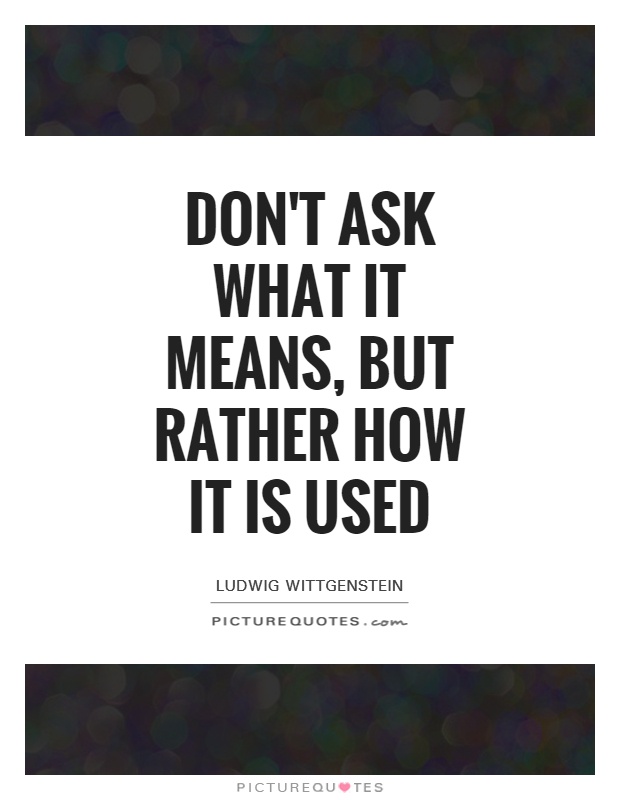Don't ask what it means, but rather how it is used

Don't ask what it means, but rather how it is used
Ludwig Wittgenstein, a renowned Austrian-British philosopher, is often associated with the quote, "Don't ask what it means, but rather how it is used." This statement encapsulates Wittgenstein's philosophy of language and the importance he placed on the practical use of language in everyday life.Wittgenstein believed that language is not simply a tool for communication, but rather a complex system of rules and conventions that govern how we interact with the world. He argued that the meaning of a word or phrase is not fixed or inherent, but rather emerges from its use in specific contexts and situations. In other words, the meaning of a word is determined by its function within a particular language game or form of life.
For Wittgenstein, understanding language is not about uncovering hidden truths or abstract concepts, but rather about observing how language is actually used in practice. He famously stated in his book "Philosophical Investigations" that "the meaning of a word is its use in the language." This idea challenges traditional philosophical approaches to language, which often seek to uncover the essential or universal meanings of words.
By focusing on how language is used in everyday situations, Wittgenstein sought to dispel the idea that language is a transparent or neutral medium for conveying information. Instead, he argued that language is inherently tied to our social practices, cultural norms, and personal experiences. This perspective has profound implications for how we understand the nature of language, communication, and knowledge.












 Friendship Quotes
Friendship Quotes Love Quotes
Love Quotes Life Quotes
Life Quotes Funny Quotes
Funny Quotes Motivational Quotes
Motivational Quotes Inspirational Quotes
Inspirational Quotes